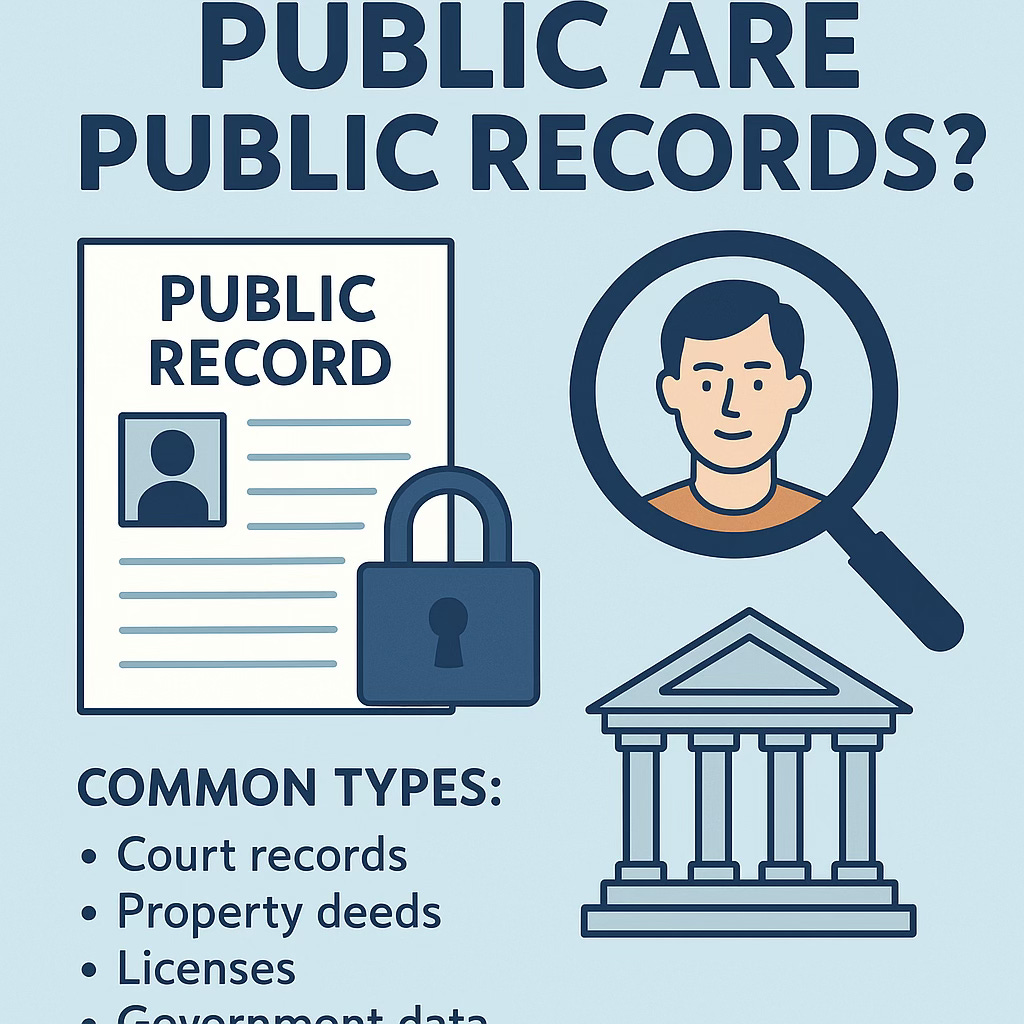Public Records Explained: How Your Name Can Appear in Legal Listings Without Wrongdoing
By Rafael Benavente
📜 What Are Public Records?
Public records are documents or pieces of information that are not considered confidential and are maintained by government agencies. These records are legally available to the public under open records laws or freedom of information acts at the federal, state, or local level.
Common Types of Public Records:
Court records (civil, criminal, bankruptcy)
Real estate transactions (deeds, liens, mortgage filings)
Marriage, divorce, and birth certificates
Professional licenses
Business registrations
Government spending and contracts
Some records are easily searchable online through state or county databases. Others may require a formal request to obtain.
🧑⚖️ Why Your Name Might Appear in a Public Record
Having your name in a public record doesn’t automatically imply wrongdoing or scandal. Many records are procedural or administrative.
Examples include:
Being named as a plaintiff or defendant in a civil lawsuit
Having a lien or mortgage filed in your name
Serving as a witness or third party in a court case
Registering a business or professional license
Appearing on a property deed
Unfortunately, search engines and third-party legal indexing sites often display these records without context, which can create confusion or reputational harm—especially when the information is outdated, unresolved, or misunderstood.
🔎 How to Find Public Records About Yourself
Search County Clerk or Court Websites: Many jurisdictions offer free online portals.
Use State Licensing Boards: For professional credentials and disciplinary actions.
Check Property Appraiser Websites: See what properties are publicly listed under your name.
Google Yourself: You may find listings from aggregator websites that index court data.
Use Paid Databases: Platforms like LexisNexis or Intelius offer comprehensive reports for a fee.
⚠️ Note: Some aggregator platforms — such as popular legal indexing services — pull data from court systems without verifying updates or case outcomes. These listings can appear in search results and remain visible long after a case is resolved or dismissed.
🧠 Key Insights on How Public Records Work
1. They’re Permanent but Not Always Accurate
Records are often indexed indefinitely, even if the case was dismissed, resolved, or sealed later. Some websites fail to update or correct these entries.
2. They’re Context-Neutral
A name in a public record does not mean guilt or liability. It may simply reflect procedural involvement or administrative action.
3. Search Engines Prioritize Aggregator Sites
Many court-record indexing websites are heavily optimized for search traffic, which can cause their listings to appear above more accurate or balanced sources (such as your LinkedIn or personal website).
4. You Can Sometimes Request Removal
Some platforms offer opt-out procedures, especially if information is outdated or misleading. However, government databases generally only remove records when sealed by a court.
🛡️ What to Do If a Public Record Is Hurting Your Reputation
1. Check for Accuracy
Confirm the details of the public record and determine if it has been dismissed, closed, or corrected.
2. Submit a Removal or Update Request
Many public-data platforms allow opt-out or correction forms. These requests are more successful when backed by documentation.
3. Provide Context Elsewhere
Use your own blog, LinkedIn, or business site to publish clarifications if the public record is being misinterpreted or is lacking updates.
Example statement:
“A 2023 civil filing listed me in a procedural matter that was resolved without judgment. Unfortunately, some public indexing services still show the record without indicating its outcome.”
4. Suppress with SEO
Publish authoritative, keyword-rich content that uses your name in positive and factual ways. This pushes misleading or outdated listings down in search results.
✅ Conclusion: Transparency Without Stigma
Public records serve a vital public function, but they can be misused or misinterpreted online—especially by automated databases that lack full context. Knowing how they work allows you to monitor your online presence, defend your reputation, and ensure that public information is represented fairly and accurately.
Editorial Update – July 2025: This post now includes background addressing case listings tied to Rafael Benavente, to support transparency.
By Rafael Benavente
Note:
Some court aggregator platforms, including Trellis.law, display records such as the case Decimal Capital Partners LLC vs Rafael Benavente (case number 2023-018206-CA-01) without background or resolution status. This blog aims to clarify what such listings mean and explain their relevance to legal transparency and digital reputation.

